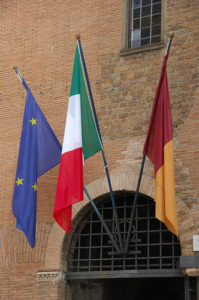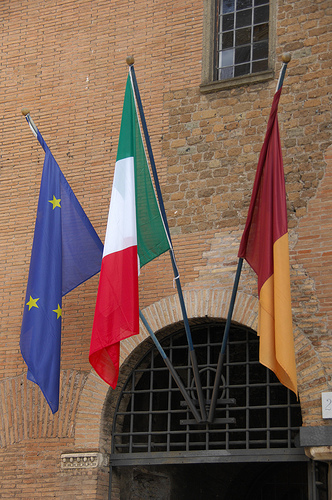BJ
Brexit, and Trump, have energized alienated voters who feel betrayed by the political establishment, stung by the economics effects of globalism, and suffocated by the insidious political correctness and other “progressive” tactics and causes. Trump and Farage have shown them that it is possible to fight back politically, and to win.
Amid the furor after Trump’s victory, the wailings of the “progressive” left and the vested interests, and their puppets in the MSM, have dominated the news cycle and drowned out other news that might be worthy of at least some attention and comment. After suffering crushing defeats on both sides of the Atlantic, you would think that their attention might now be turned to the next battle, rather than occupying their time with calling names at the voters responsible for the winning the last two, but apparently not.
As the wave of electoral rebellion builds, the next test comes in Italy, which will shortly hold a referendum on electoral reform that is being pushed by the Italian Prime Minister Mateo Renzi, that is an effective precursor to a general election in 2018.
 Italy has a bicameral parliamentary system with a lower house called the Italicum and a Senate; and each house has similar powers. Italy is also one of the most politically fragmented electorates in the Western world, and post-war governments have generally been disparate, and often desperate, coalitions of diverse and often conflicting political parties, which usually don’t last long. Unsurprisingly in those circumstances, the government in the Italicum usually does not control the Senate, and, in a scenario that is depressingly familiar to Australians, the outcome is legislation that often bounces between the two houses of parliament, or is simply blocked in the Senate.
Italy has a bicameral parliamentary system with a lower house called the Italicum and a Senate; and each house has similar powers. Italy is also one of the most politically fragmented electorates in the Western world, and post-war governments have generally been disparate, and often desperate, coalitions of diverse and often conflicting political parties, which usually don’t last long. Unsurprisingly in those circumstances, the government in the Italicum usually does not control the Senate, and, in a scenario that is depressingly familiar to Australians, the outcome is legislation that often bounces between the two houses of parliament, or is simply blocked in the Senate.
Enter Mateo Renzi, who became Prime Minister at the election in 2014. Renzi doesn’t like the vagaries of coalition government, so he promoted reforms to the way that the Italicum is elected and to the role and powers of the Senate. Under the reforms, the Senate will be reduced to a house of the regions, and will no longer be able to block legislation. The Italicum will be elected in a complicated process where, if a party obtains at least 40% of the vote in the first vote, it gets a bonus of 15%, and therefore a majority, and if no party gains 40% of the vote in the first round, a run-off is held between only the largest parties.
The reforms were passed by the Italicum, and by the Senate, however there are a number of extant challenges to the validity of the laws in the Constitutional Court, which has agreed to defer ruling until after a referendum.
If the Yes case wins, the result is, of course, a changed electoral system that will favour the largest political parties, and make it difficult, if not impossible, for parties like the Five Star Movement, Italy’s Euro-skeptic party.
If the No case wins, Renzi’s authority is damaged, if not destroyed, and an early election seems likely. In that scenario the Five Star Movement, for which support is surging, may take an influential role in the new government, and the Five Star Movement advocates an in/out referendum on the common currency; and if they were to gain power, possibly on EU membership itself.
So the prospect of yet more political instability, and an early general election, which could plausibly result in Italy voting on leaving the Euro, and possibly on Itexit, looms. And all in the context of a rapidly failing local economy, where many people are feeling the pinch, and many of the Italian banks are teetering on the brink of insolvency and requiring a taxpayer bail-in or an EU bail-out.
You can see why the establishment is in yet another lather; the voters might be about to do it to them again. And of course Jean-Claude Juncker was out and about yesterday saying EU members should not permit any further referenda on EU Membership, because the people might vote to leave. So much for democracy!
Photo by fourthandfifteen 










